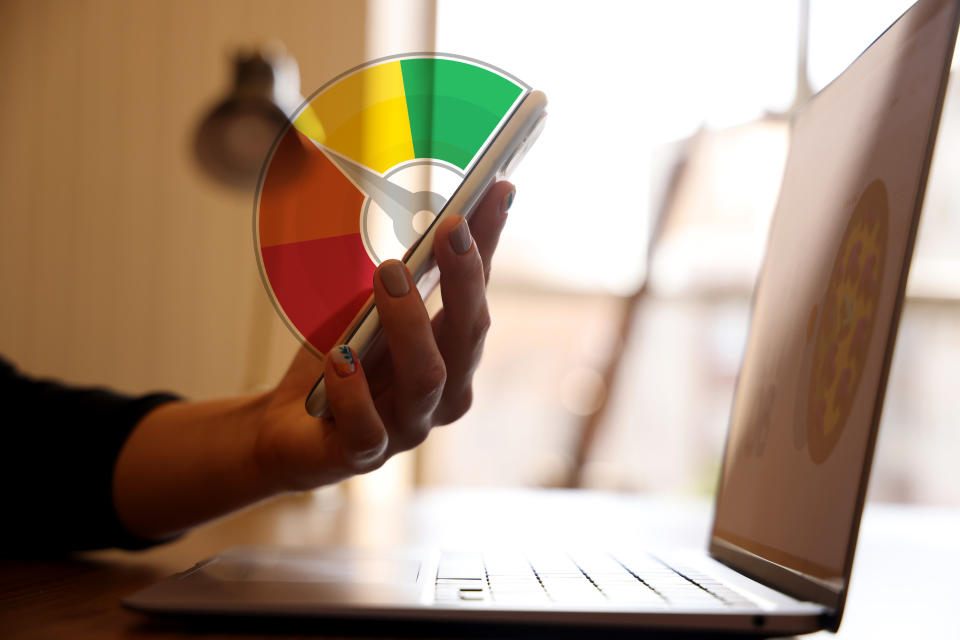Millennials Are Sharing Recession-Survival Tips For Gen Z, And We Really Learned This Stuff The Hard Way
Lately, people have been talking a lot about recessions: if one is coming, if it's already here, or how we can avoid one. But whether a recession is in the cards or not, it's clear that money's not going as far as it used to thanks to inflation.

As a millennial who graduated from college during the Great Recession (with an English degree of all things), my early-adult life was NOT what I'd expected it would be. And all this recession-talk has me thinking about the folks who are just getting started now, especially those in Gen Z.
So recently, I asked millennials in the BuzzFeed Community to share their recession advice for Gen Z. Here's what they had to say:
1."I graduated college in 2008. What I can say is: Don’t get discouraged. It will be rough, and it’s easy to get depressed. You may have to get a job lower than your education, so take whatever job you can get. I had a bachelor's degree but couldn’t find a job. So, I took whatever I could find. I was working two low-paying jobs, one at a hardware store and one at a clothing store. That’s how I made rent for a year until one place made me full-time.
BET / Via giphy.com
"Then, I had time to start really looking for a 'real' job. So, while I worked that full-time job at a hardware store, I threw résumés everywhere. It took another year to get my job, but I was able to survive off of the other job. It won’t work everywhere, but that’s how I got through."
2."Keep your job, or at least don't quit your job without another lined up. I moved to a new state and figured I could always work at Walmart or Burger King if I can't find a job I really want. Guess who wasn't hiring because they were fully staffed?
"I had to take a part-time job an hour from home.
"Don't believe everything you hear or read. For months, all we heard was, 'We're not in a recession!' And then, seemingly overnight the rhetoric changed to, 'It's the Great Recession!' It'll be crap for a while, and then it'll get better. Ride it out."
—Rebecca
3."Although the temptation will be strong, especially with social media, do NOT compare yourself to others. It is so easy to think that because someone else is spending money on manicures and new clothes all the time that it’s okay if you do the same, but you don’t truly know their financial situation, and you need to focus on your own. Once you have an emergency fund in place and you are debt-free, that’s when you can splurge more and be guilt-free about it."

—Laura, Buffalo, NY
4."Do your best to accumulate as little student debt as possible. Think about starting at community college, look into scholarships, etc. And think long and hard about whether that degree will actually lead to a career that will support you. And think about whether further education (a master's or PhD) will be required to work in that field. Because that's more student debt.
"I have too many friends with psychology degrees and massive debt who are working low-wage jobs in unrelated fields because their degree is meaningless without further education."
5."Take a good look at your subscription services. Do you really need Netflix, Hulu, AND Disney+? If you play video games, then do you really need the PS+ membership (or whatever Xbox offers)? Same with any kind of subscription boxes you may be getting monthly.
Peacock / Via giphy.com
"Learn to cook your own food. Not just freezer meals either. Ideally, learn to cook something that will turn into leftovers.
"If you drink, then learn to make a few signature drinks at home. Some recipes are super simple and way more affordable to buy the ingredients yourself instead of paying for a single drink of the same thing at a bar.
"Always check Facebook Marketplace (set your options to 'local pickup' to avoid scams easier) for items instead of buying them new. Or check flea markets.
"Learn which places offer discounts on certain days for entertainment. For example, our local movie theater has cheaper tickets on Tuesdays."
6."Find a second source of income. Whether it’s working overtime, picking up a second job, freelancing, or something else that’s only a few extra hours per week. Getting some extra money helps soften the blow in the event you lose your job.
"Instead of going out, take turns hosting get-togethers. It’s amazing how much money you’ll have by staying in and inviting friends over instead of going out for a night on the town."
—Anonymous
7."Whatever you do, make sure your credit score never slips. I was raised by a financially illiterate Boomer who, as soon as I got my first credit card, needed an emergency cash advance, which I stupidly agreed to. The balance never got repaid, and I was stuck with the debt for most of my 20s. Having no credit meant that every little thing became an emergency.

"My first job post-college paid $9 an hour. I had no savings and was absolutely miserable. If I needed a car repair, I would sometimes have to wait weeks until my next paycheck.
"Also, if you are in a better financial position, save what you can when you're young. Compound interest is a thing of magic, and you will thank yourself when you're my age."
—Bridget, St Louis, MO
Psst, if you don't have a credit score yet, here's what you need to know.
8."I’m a recession millennial. My advice as someone with a humanities degree that put me in debt and did nothing for my career — don’t get a college degree for the sake of getting a college degree! This could end up putting you in decades of unnecessary financial debt. Degrees aren’t like what they were for Boomers where they guaranteed well-paid employment.
"Only get one if it directly correlates to a specific career path (ex: teacher, engineer, etc). Friendly reminder that the 'people with college degrees make more money' statistic is skewed and misleading because it lumps in 'profitable' degrees with 'unprofitable' degrees.
"Also, embrace trades! When I grew up, there was a stigma against trade school. During the Great Recession, friends of mine who pursued trades had the last laugh. Especially the ones who worked for a union."
9."If you don’t currently invest in a 401(k) or IRA, or any type of account linked to the stock market, a recession is the perfect time to start. Mutual funds and individual stocks are going to decrease in value, so buy up as much as you can when they’re low-valued because, historically, the market always rebounds, and those puppies will be worth much more than what you bought them for."
CBC / Via giphy.com
—Gbell, Rowlett TX
Interested in investing but not sure where to start? Check out these beginner-friendly books, podcasts, and more that can help you figure out an investing plan that's right for you.
10."Stick to your meal plan. It's also cheaper to be vegetarian. I relied heavily on beans and eggs for protein during the Great Recession. If you can, buy non-perishables like rice, oil, beans, and flour in bulk a couple times a year when you find them on sale. Then, the only question mark with your grocery bill is produce and eggs. And dairy if you can afford it.
"If you can get a union job, take it. Layoffs are harder to follow through on there. My supervisor likes to tell the story of how he was almost laid off in 2011 until the union membership rallied and passed a new contract that forewent raises for three years in exchange for no jobs lost."
11."Have a rainy day fund. I recommend setting aside literally any amount you can in a savings account that you cannot easily access. I have an account that I have to walk in to the bank to withdraw money from, and $20 from every paycheck goes there. I don't miss the $20 from my paycheck, and that money builds up. I also deposit any 'extras' I get — if I sell a craft I've made or some possessions, if a family member gives me birthday cash, etc.

"Even if there isn't a lot of money in that account, when I have an emergency need for funds — car repairs, home repairs, medical bills, etc. — that account makes a huge difference."
12."In 2008, I graduated high school as a poor, Black millennial. I was told college was the only way to be successful. I wish I would have waited until the recession passed and then went to college. I am $150K in student loan debt working, and I’ll never own anything.
"Wages are better (yes, inflation is high, but this, too, shall pass), and jobs are vying for you to work for them! They will pay for you to go to college! LET THEM! Get your college education for free. Don’t let the pursuit of an education hold you back in your 30s/40s. Figure out how to have your employer, the state/county/government pay for your education.
"Student loans are typically not dischargeable in bankruptcy. I wish someone would have told me this when I was in school."
—Lilith, Indiana
13."If you're just graduating college, be flexible with your career plans and open to opportunities. Take what you can get as a starting job, and grow from there. A grocery store job can become a manager position and so on.
PBS / Via giphy.com
"If you can jump into a post-grad program with an assistantship that won't add any student debt, it can be a good option even if that program is not exactly what you thought you would be doing. Ride out the recession in a master's (or PhD if you absolutely have to) program and graduate with a network to help with your job search.
"If you can't afford an apartment, but also can't stay with family, look for room rentals. Especially if you live in a smaller city. People often will rent out just a room in their house, and the rent is often all inclusive (utilities, internet, etc.). It's helpful to have no question marks when it comes to monthly expenses. You just have to be okay with having a roommate who is also your landlord."
14."This is always true, but especially in a recession, let go of what you thought your life would look like. The timelines you have in your head, your career plans you've wanted since you were 10. Be open to different things and adapting to what is available.
"Know that you are not stuck in one thing forever — you can change cities and partners and careers later. You're not nailed down by what you're doing immediately post-college, so don't stress or feel like a failure if you're not living what you thought your dream life would be by the time you're 23."
15."Hope for the best, prepare for the worst. The more you plan, the more things will go wrong, but you always need a plan. Plan on making new plans when plans fall through. There is no such thing as absolute failure; it's just a lesson. Learn something, get up, and try it again."

—Logan, Colorado Springs, CO
16."Leave the country if you can. There is no safety net in the US. If you can get a job in a country with national healthcare and good public transit, do it now. I worked abroad from 2006 to 2013. While friends in the states lost houses and jobs, I paid off my student loans and saved up enough money to buy a car and get a down payment for a house."
—Anonymous
17."Work for a company with a lot of jobs and departments where you can cross train and learn the business from the ground up. You can change jobs or focus to find your niche while maintaining the same benefits. Look for places that also have 401(k) company match, even if it isn't much, and max it out — it's free money."
NBC / Via giphy.com
—Anonymous
18."Stay home with your parents if you have the option. Yeah, okay, it may suck, especially if you're dating someone, but you will BITTERLY REGRET dumping money on rent just to get out. I graduated into the last recession and stayed home until I was almost 28.
"All my friends immediately went into cities and rented. Over 15 years later, I am one of the very few of my friends to own a home because I saved every penny I earned while living at home and then was able to buy when the economy and market stabilized again. If your parents are willing and they're not toxic — GO HOME."
19."Use ANY resources you have available to you, including still living with your parents. No shame in that. And, more than anything, LEARN TO MANAGE YOUR MONEY. Personal finance is much simpler than we’re led to believe and will save you a lot of headaches in the long run."

Not sure where to start learning more about personal finance? Check out these money lessons millennials shared with Gen Z.
20."Every older generation is going to have some critique of you, your generation, and your behavior. Anytime you hear a sentence start with, 'The problem with your generation,' just stop listening. No generation has come close to doing such a good job that the next generation should just repeat it."
—Anonymous
21.And finally, "In the words of Jurassic Park, hold onto your butts."
Universal Pictures / Via giphy.com

